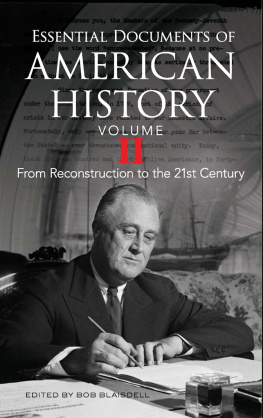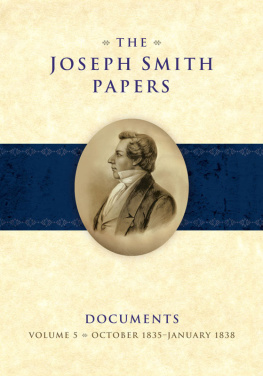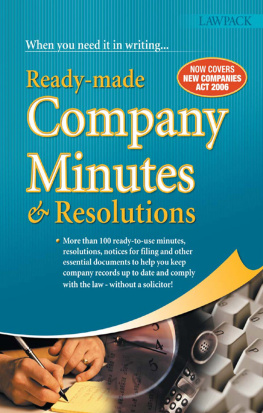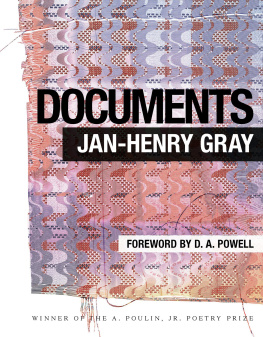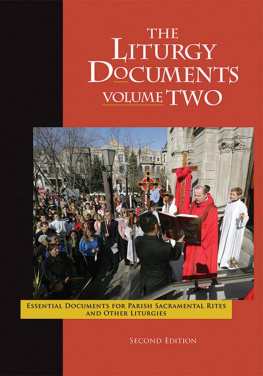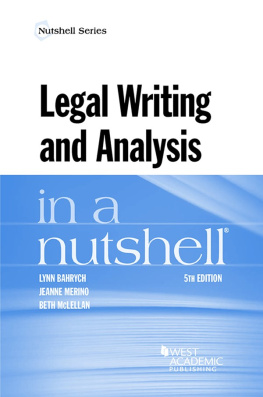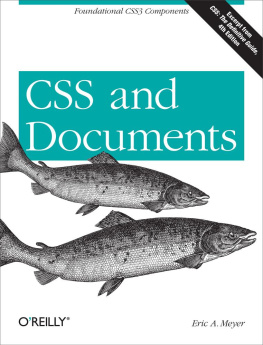5@55
THE 5 ESSENTIAL LEGAL DOCUMENTS YOU NEED BY AGE 55
By Judith D. Grimaldi
and
Joanne Seminara
with
Pierre A. Lehu

5@55
Copyright 2015 by Judith D. Grimaldi and Joanne Seminara,
with Pierre A. Lehu
All rights reserved.
Published by Quill Driver Books,
an imprint of Linden Publishing
2006 South Mary, Fresno, California 93721
559-233-6633 / 800-345-4447
QuillDriverBooks.com
Quill Driver Books and Colophon are trademarks
of Linden Publishing, Inc.
DISCLAIMER: This book is intended to inform, not to advise. No one should attempt to interpret or apply any law without the aid of an attorney. This is particularly true of elder law and trusts and estates law. You should consult an attorney of your choice before making decisions in all areas of the law discussed in this book.
ISBN 978-1-61035-258-1
Printed in the United States
First Printing
Library of Congress Cataloging-in-Publication Data
Grimaldi, Judith D., author.
5@55 : the 5 essential legal documents you need by age 55 / by Judith D. Grimaldi and Joanne Seminara with Pierre A. Lehu.
pages cm
Includes index.
ISBN 978-1-61035-258-1 (pbk. : alk. paper)
1. Estate planningUnited States. I. Seminara, Joanne, author. II. Lehu, Pierre A., author. III. Title. IV. Title: Five at fifty-five.
KF750.Z9G75 2015
332.0240160973dc23
2015011846
Contents
CHAPTER ONE
The Importance of Being Prepared
CHAPTER TWO
Document 1: The Health Care Proxy
CHAPTER THREE
Document 2: The Living Will and End-of-Life Choices
CHAPTER FOUR
Document 3: The Power of Attorney
CHAPTER FIVE
Document 4: Wills, Trusts, and Other Planning Tools
CHAPTER SIX
Digital Estate Planning: The Digital Diary
This book is dedicated to our clients. You graciously entrust us with your life stories and we, in turn, are inspired by your kindness and courage.
Foreword
Iapproach this projectand this extraordinary bookfrom a relatively unique perspective. For seven years, I was Surrogate Judge in New York County, perhaps the busiest and most litigious court in the nation for battles about the apportioning of estates. And prior to that I served on the court that hears adult guardianship cases, where many of the problems described in this book are unfortunately resolved. At the age of 72, I am also (although not for much longer!) a person who has inexplicably failed to do all of the advanced planning so appropriately encouraged by the authors of 5@55.
This book discusses in depth the five documents that are critical for advanced planning. Everyone should understand that if someone dies without a Will it is the law, not the persons wishes, that determines distribution of his or her estate. This law, called intestacy, operates according to a very strict hierarchy of persons who would inherit, which is entirely dependent upon blood relationships. As such, a person who died without a Will, and also without a living spouse, children, siblings, or parents, would have his or her estate distributed to nieces or nephews, if any, or to first or even second cousins whom the deceased may never have met. Entirely left out could be people such as a cherished stepchild, devoted friend, or beloved domestic partner who had provided years of care and support. I know this because I saw it month after month in my courtroom, and was saddened because I knew these results could not possibly have been the wishes of the deceased. But without a Will, I was powerless to change things. If only they had planned ahead, I often thought.
In my time as a judge hearing guardianship cases, I also saw the needless expense and affronts to a persons dignity that inevitably accompany a guardianship proceeding. Guardianship all too often removes both liberty and property rights from a person, and robs her or him of the ability to make personal choices over a wide range of issues. A guardianship hearing exposes in excruciating detail all of the weaknesses and inadequacies of the person for whom the guardianship is soughtwith him or her present to hear it. This is not an experience any of us would want to go through. All of this can be avoided if a person has made appropriate plans in advance, which may include Powers of Attorney, Trusts, and health care decision-making instruments.
Perhaps most difficult and heartbreaking are the cases in which a court is required to make medical decisions, particularly end-of-life decisions where there is no advance directive. Similar to guardianship proceedings, these often pit children or other relatives against each other with regard to medical decisions that a person ought to be able to make for herself, but which she may now be incapable of either making or communicating. How can we possibly decide who knows best in these situations? And I have seen, as well, the bitterness and guilt of family members who, in the former case have been removed from the decision-making process, and who, in the latter, have made life-ending decisions without any absolute certainty that such decisions were what the person her/himself would have made.
So you would think that I, of all people, would have executed all five documents proposed by the 5@55 project. But, like so many people who will read this book, or whose lawyers will read this book, I havent. In fact, Ive never even thought about my cyber afterlife and what steps I might take to deal with that situation appropriately. I can assure you, however, after reading this thoughtful, perceptive, and legally well-grounded book, I will do so, and I would strongly suggest that you read it and share the authors wisdom and do so as well.
Kristin Booth Glen, University Professor and Dean Emerita, CUNY School of Law, Surrogate Judge, NY County (Ret.)
Preface
Our five decades of combined law practice have taught us that receiving early legal planning advice from a qualified attorney about the five basic legal documents described in this book is priceless. Timely planning helps people avoid stress and indecision at critical transitional moments in their lives and can provide loved ones with peace and financial security. We approach the practice of law as compassionate advocates for our clients. We hope that our book presents complicated legal concepts clearly and concisely through the lens of our many years of practice in the fields of elder law, estates and trusts, and special needs law.
As lawyers, we often write more formally. But 5@55 is not a tome for lawyers written in legalese. Our goal is to demystify the estate planning process and simplify the concepts. Our co-author, Pierre A. Lehu, deserves a great deal of credit for making our subject matter more palatable and understandable by helping to write this book in a clear, realistic, and sometimes humorous style.
Through our stories and descriptions, we explain the basic need for the five crucial documents that almost everyone of us should have in place on or before our 55th birthday. Our goal is to persuade you, our reader, to undertake the important task of finding an appropriate lawyer who can help you create these five documents, and thereby protect you, your estate, and your loved ones from the expense and delay that often accompanies the settlement of an estate through an in-court proceeding.
We wrote this book as a result of our clients experiences in difficult situations which would have been much simpler and less stressful if precautionary planning had been done. Our goal is to give you an inside view of what to do to avoid pre- and post-retirement pitfalls.


